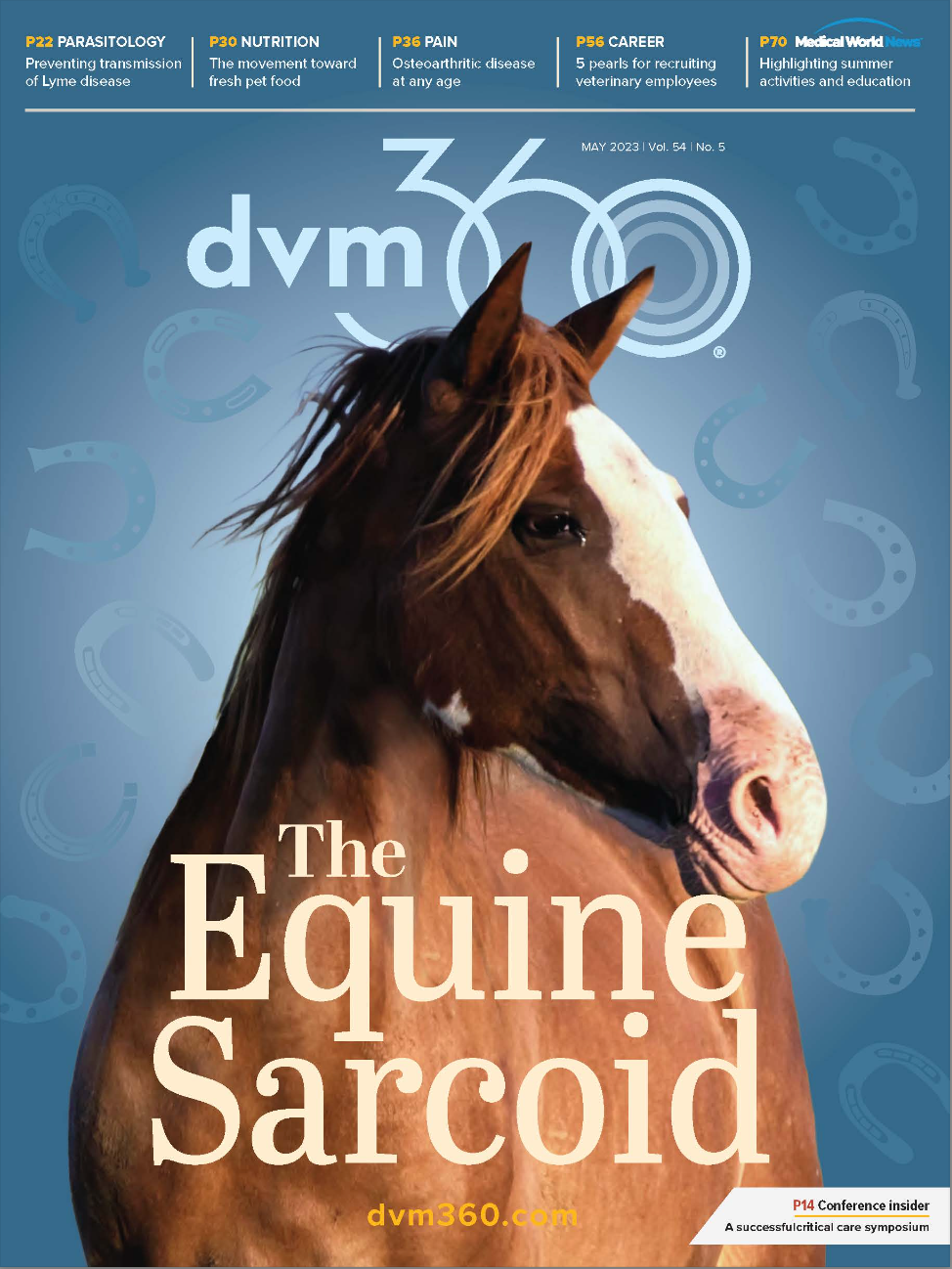We are the advocates
The latest installment of The Dilemma
Editor’s note: All names and businesses in this dilemma case are fictitious, but the scenario is based on real occurrences.
Yakobchuk Olena / stock.adobe.com

The Hill Animal Clinic is an urban, small-animal practice that has been
a staple of the community for 25 years. Five veterinarians and 22 support
staff are proud of their cutting-edge medicine and community outreach. They support the local animal shelters by giving each a monthly stipend that can be used to treat medical issues for shelter pets. They offer a free monthly puppy parenting class for new pet owners. The clinic’s social media sites serve as educational platforms and remind clients about pet preventive care.
Recently, a man came into the clinic with a 50-lb mixed-breed dog presenting with chronic neck lesions and scleral hemorrhage in the left eye. The man reported he had been wrestling and playing with his dog and noticed the dog blinking and favoring his eye. Dr Bre examined the dog and noted that the neck lesions were clearly a result of a spiked collar that was used in an aggressive fashion and determined that the scleral hemorrhage was a result of trauma. She reached this conclusion after obtaining a more comprehensive history.
Dealing with the dog’s injuries was not a difficult medical problem. Preventing future injuries was her priority. She had to discuss her conclusions without alienating the pet owner so that she could ensure no further abuse would occur. On the other hand, first and foremost, she was an advocate for the health and well-being of her patient. Should she chastise the owner for the abuse of his pet and get him to commit to this not happening in the future? Should she report him to the local animal abuse enforcement agency that takes reports from veterinarians very seriously? Her goal was to see that this dog remained in a nonabusive, caring home and that the owner was both put
on notice and instructed on how the dog should be treated going forward.
Bre took a moment to consult with colleagues. Their input varied from recommending she report the man and attempt to take the dog to tactfully discussing the situation and advising the owner that this behavior was unacceptable. It was now time to face the pet owner. She first reported the extent of the dog’s injuries and the medication necessary to allow it to heal. She then told the pet owner that she had determined that these injuries were a result of the dog receiving physical abuse. She continued by saying that abusing a dog in this way was unacceptable. The owner admitted that he had lost his temper and assured her that this would never happen again. This was not enough for Bre. She said that as a person and a veterinarian, she had a responsibility to see that this dog suffered no further abuse. If the owner truly wanted to continue to humanely shelter this dog and not have her report this behavior, he had to promise he would never physically abuse the dog again and present the dog to the clinic once weekly for the next 8 weeks to be examined by a staff member at no charge.
The owner was both apologetic and adherent. This was a fortunate outcome. The owner could have just as easily picked the dog up and walked out of the clinic in a huff. Bre felt she had acted in a way that would ultimately prevent this abuse from happening again.
Do you feel that she did enough? Would you have handled this situation differently?
Rosenberg's response
We as veterinarians are the gatekeepers and advocates of these animals that share the Earth with us. We are not just medical practitioners. We must be humane advocates and support the humane associations in our communities. We must never rationalize or turn a blind eye to suspected abuse. When in doubt, point it out. Bre ended up helping the pet and the pet owner. She is a credit to her profession.
Marc Rosenberg, VMD, is director of Voorhees Veterinary Center in Voorhees, New Jersey. Although many of the scenarios Rosenberg describes in his column are based on real-life events, the veterinary practices, doctors, and employees described are fictional.
